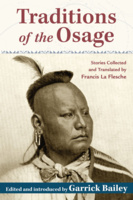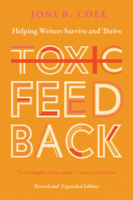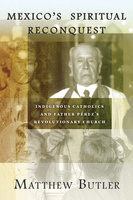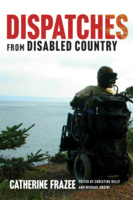Blackness in Mexico
Afro-Mexican Recognition and the Production of Citizenship in the Costa Chica
Traditions of the Osage
Stories Collected and Translated by Francis La Flesche
Sacred teachings, folk stories, and animal stories collected in their original language, Osage, between 1910 and 1923.
Toxic Feedback
Helping Writers Survive and Thrive. Revised and Expanded Edition.
The Transnational Construction of Mayanness
Reading Modern Mesoamerica through US Archives
The Transnational Construction of Mayanness explores how US academics, travelers, officials, and capitalists contributed to the construction of the Maya as an area of academic knowledge and affected the lives of the Maya peoples who were the subject of generations of anthropological research from the mid-nineteenth century to the present.
The Study of Photography in Latin America
Critical Insights and Methodological Approaches
Pre-Mamom Pottery Variation and the Preclassic Origins of the Lowland Maya
Pre-Mamom Pottery Variation and the Preclassic Origins of the Lowland Maya summarizes archaeological researchers’ current views on the adoption and first use of pottery across the Maya lowlands.
My Name is LaMoosh
My Name is LaMoosh is the life story of Warm Springs Tribal Elder Linda Meanus. She grew up with her grandma Flora Thompson and grandpa Chief Tommy Thompson near Celilo Falls, a mighty fishery on the Columbia that was flooded in 1957 by the construction of The Dalles Dam. Linda persevered through this historic trauma and life’s challenges to teach young people about the Indigenous ways of the Columbia River. Intended for early readers to learn more about Native American history through a first-hand account, the book is also a reminder that Indigenous people continue to maintain a cultural connection to the land and river that gave them their identity.
My Name is LaMoosh includes fact boxes that provide historical, cultural, and environmental context for Linda’s personal story. Hundreds of books exist about Lewis and Clark and their journey of “discovery.” This book balances our understanding of American history with the long-neglected voices of Indigenous people. Linda’s story is not just about historic trauma but also about resilience, perseverance, and reciprocity.
Published in cooperation with Confluence
Mexico's Spiritual Reconquest
Indigenous Catholics and Father Pérez’s Revolutionary Church
Failing Sideways
Queer Possibilities for Writing Assessment
Failing Sideways is an innovative and fresh approach to assessment that intersects writing studies, educational measurement, and queer rhetorics.
Dispatches from Disabled Country
Dispatches from Disabled Country is a nuanced and unmistakably poetic introduction to the rich landscape of disability activism and culture from one of Canada’s most recognized voices, Catherine Frazee.
Women and New Hollywood
Gender, Creative Labor, and 1970s American Cinema
Women and New Hollywood revises our understanding of 1970s American film by examining the contributions that women made not only as directors, but also as screenwriters, editors, actors, producers, and critics. Considering both women working within and beyond the Hollywood film industry, this collection showcases the rich and varied cinematic products of women’s creative labor.
Unguarded Border
American Émigrés in Canada during the Vietnam War
The Ultimate Guide to the Jersey Shore
Where to Eat, What to Do, and so Much More
The Secret Life of Things
Animals, Objects, and It-Narratives in Eighteenth-Century England
The Counterfeit Coin
Videogames and Fantasies of Empowerment
Resilient Kitchens
American Immigrant Cooking in a Time of Crisis, Essays and Recipes
Ordering Customs
Ethnographic Thought in Early Modern Venice
Ordering Customs is an intellectual and cultural history of the production and circulation of ethnographic knowledge in early modern Venice. It examines how a range of figures—diplomats, bureaucrats, printers, readers, and ordinary Venetians—produced, used, and circulated information about customs from the sixteenth through the early seventeenth centuries.
Global White Supremacy
Anti-Blackness and the University as Colonizer
Global White supremacy is deeply historical and contemporary—a transnational and imperial phenomenon that is maintained through academic constructions of anti-Blackness. Collins, Newman, and Jun offer context, history, and perspective that disrupt how the curriculum, statues, architectures, and other aspects of the university serve as sites of colonial and White supremacist preservation—as well as sites of resistance.



















